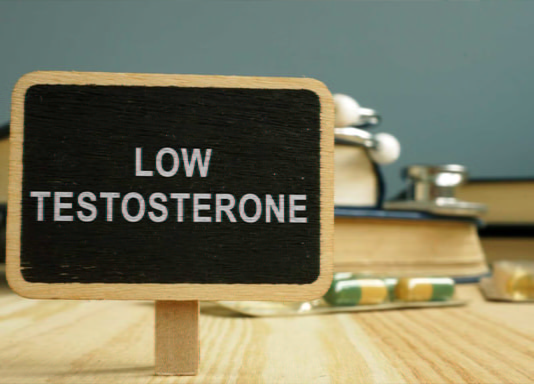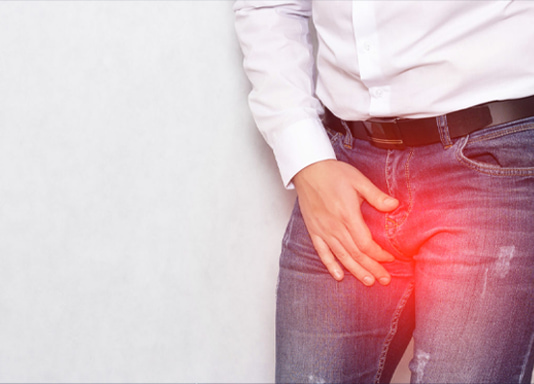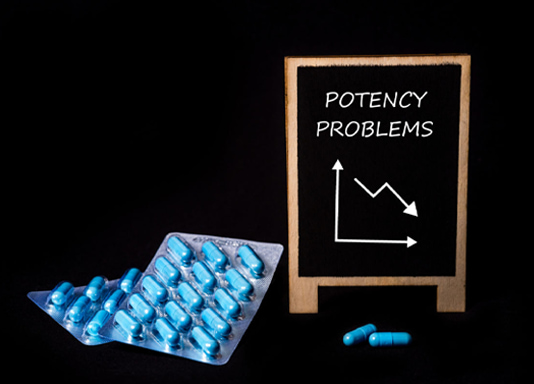Low Testosterone and Men’s Health – What is the role of testosterone in men’s health?
It controls typical male physical features, such as facial, pubic, and body hair as well as muscle. This hormone also helps maintain sex drive, sperm production, muscle mass and strength, as well as bone health. The brain, through its pituitary gland (a small gland at the base of the brain, control the production of testosterone by the testes. From there, testosterone moves through your blood to do its work in different parts of your body.
Production increases during puberty and starts to decrease after age 30. For each year over age 30, the level of testosterone in men starts to slowly dip at a rate of around 1 percent per year. A gradual decrease in testosterone level is a natural result of aging.
For many reasons, testosterone can become—and stay—too (abnormally) low. When this hormone is not in balance, health problems can result. In the short term, low testosterone (also called hypogonadism) can cause
- A decline in sex desire
- Poor erections
- Low sperm count
- General weakness and low stamina
- Depressed mood / depression
Over time, low testosterone may cause a man to lose body hair, muscle bulk, and strength and to gain body fat. Chronic (long-term) low testosterone may also cause weak bones (osteoporosis), mood changes, less energy, and smaller testes. Signs and symptoms (what you see and feel) vary from person to person.
What causes low testosterone?
Low level of body testosterone can result from:
- Injury to the testicles (e.g. trauma or an infection)
- Exposure of the testicles to harmful agents (e.g. during radiation or chemotherapy treatment for cancer)
- Taking anabolic steroids to enhance performance or muscle mass (e.g. body building)
- Hormonal ailments (e.g. pituitary tumors or diseases, high levels of prolactin)
- Chronic diseases (e.g. liver and kidney disease, obesity, type 2 diabetes, etc.)
- Genetic abnormalities that affect the testicles
How is low testosterone diagnosed?
During a physical assessment, your Urologist in-charge will clinically examine your body; assess the distribution of body hair, size of your breasts and male organ, and the size and consistency of the testes and scrotum. Your doctor will also use blood tests to see if your total testosterone level is low.
For a proper diagnosis and an effective treatment plan, be open with your Urologist about your medical history, any medications you are now taking, concerns related to sexual performance, and any major changes in your life.
How can low testosterone be treated?
Regardless of the reason why you’re experiencing low testosterone, there are treatment options available to increase testosterone and/or reduce the symptoms you’re suffering from. Treatment options include the following:
- Testosterone therapy: Testosterone supplementation is an option for men experiencing low testosterone. It can be delivered in several ways: injections into the muscle every few weeks; patches or gels applied to the skin; a patch that is applied inside the mouth; or pellets that are inserted under the skin. It is to be noted that men who have experienced or are at a high risk of prostate cancer should not use testosterone therapy.
- Losing weight and being physically active through regular exercise can help slow the decrease of testosterone your body is experiencing.
- Erectile dysfunction medication: If you’re most concerning symptom from low testosterone is erectile dysfunction, erectile dysfunction medications can help treat the symptom.
It is crucial to state that not everyone with low testosterone needs treatment. “When it comes to treating low testosterone in active young men, hormone replacement therapy is usually reserved for those who have aggressive symptoms that are disturbing the daily routine of life” Prof. Ralf says.
The bottom line is, if you have low testosterone symptoms, it’s important to see your Man’s Health expert.
Article by:
Prof. Ralf Herwig
Urologist & Man`s Health Expert









